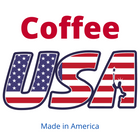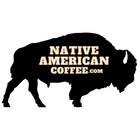Some coffee may have all 4 of these labels. Organic, shade-grown and bird-friendly are all aspects of coffee growing that all fall into the "environmental" category. They refer to how the coffee is grown, and how the methods effects the local ecosystems. But fair trade coffee is a different term for how the workers who do all the picking and processing are treated. It's a human and social distinction, not an environmental one.
Coffee that is certified as fair trade, has been grown on locally owned farms where the farmers and workers are paid a fair wage and equitable price for their coffee bean harvest. In order for a coffee company to label their products as Fair Trade certified, they have to meet certain standards. Child labor is not allowed, and all workers must be able to work in safe healthy conditions. The farmers involved are part of an organized co-op, who all democratically make decisions involving pricing and profits for their collective harvests.
Social development programs are also important, and some part of the coffee profits must be invested back into the community. Education, health care and the environment are all typical uses for social reinvestment. Specific details and requirements are managed by the Fair Trade Labeling Organization. The initiative to maintain prices and working conditions started in 1988 when a surplus of coffee on the world market let to prices that were too low to allow farmers to survive. The original group as was in the Netherlands, and called Max Havelaar. They created the first standards and labeling for Fair Trade coffee. The idea spread to other countries, and the single Fair Trade Labeling Organization was eventually born. Once considered a fringe idea, many mainstream sellers now offer Fair Trade coffee, such as Starbucks and Folgers. Even McDonald's serves Fair Trade coffee these days.
Though large companies have taken on the Fair Trade banner, many smaller companies such as Green Mountain has been carrying these ethical coffees for many years. The Fair Trade label doesn't only apply to coffee, but also to tea, cocoa, sugar and a number of other crops. Even grains, fruit and handicrafts can be fairly traded and certified. The same principle applies in all cases, though the prices guaranteed for each type of crop will vary. Sometimes the choices you make when making even the smallest purchase can have a bigger impact on the world. Whenever you can, try to purchase fairly traded coffee and tea and you'll be helping out a coffee farmer somewhere in the world.
The term "ethical coffee" is sometimes used to describe Fair Trade coffee, though it also encompasses organic and other eco-friendly growing practices.






